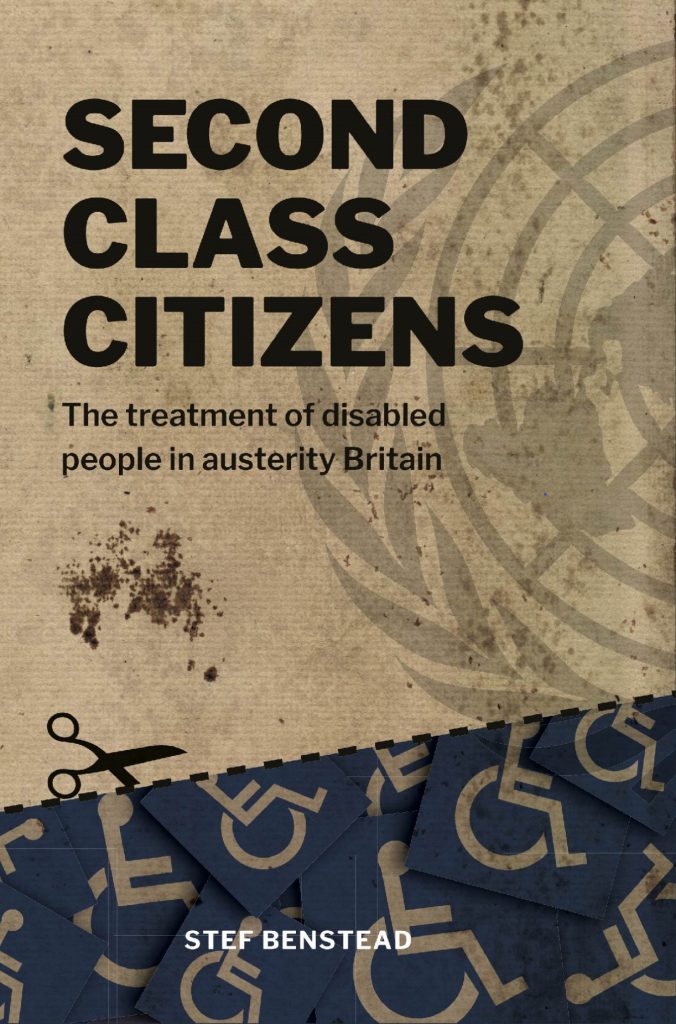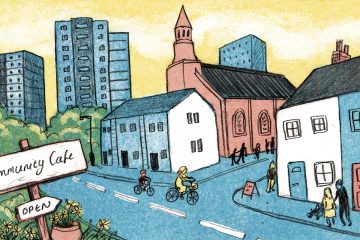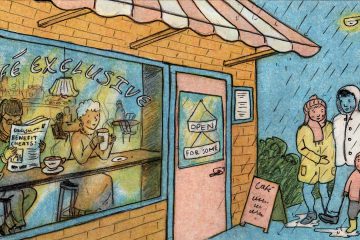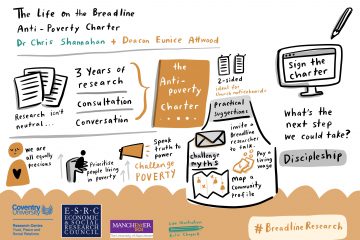‘Second Class Citizens’ by Stef Benstead was recently published. Here, Stef shares her thoughts in relation to the book:

Stef writes: “Second Class Citizens provides a comprehensive view of the history of the UK’s treatment of disabled people, from living with their families in agrarian communities, through monasteries, asylums, workhouses, eugenics and the formation of the welfare state to the neoliberal ideology and myths of welfare dependency that have been used to tear apart the safety net. Disabled people have been variously viewed as saints, sinners, deserving and a drain on society. We were vilified in the early 20th century, ignored in the mid-20th century, re-established as villains by the start of the 21st century.
The original welfare state largely did not cater for sick and disabled people. Perhaps it was assumed that the newly-created National Health Service would reduce cases of long-term illness. Perhaps the disabled were overlooked, as many lived in segregated communities and therefore didn’t come to the attention of policy makers. Perhaps it was assumed that in a society where women stayed at home to do the housework, disabled people were already covered by the caring women and bread-winning men. Whatever the reason, the original welfare state did not have a proper long-term sickness benefit, let alone any support for the extra costs of disability.
It took campaigning by disabled people themselves to change this. The social model of disability was developed, in which the primary locus of disability is not the individual’s medical condition, but the set-up of society. This placed the onus for change on society. And in a society that had recently created the NHS, National Insurance and the social security system, it didn’t make sense to continue to exclude disabled people from the ‘cradle to grave’ support of the state.

Disabled people successfully campaigned for a new sickness benefit for those unable to work in the long-term (1971, Invalidity Benefit), a disabled benefit to cover the extra-costs that disabled people face (1971, Attendance Allowance; 1975, Mobility Allowance), and laws against disability discrimination in the workplace, public environment and provision of services (1995 Disability Discrimination Act). When the extra-costs benefit proved inadequate, a replacement was brought in for children and working-age adults (1992, Disability Living Allowance (DLA)). Revelations of the level of abuse of disabled people housed in hospitals led to commitments to end institutionalisation and provide more social care in the community.
But alongside these positive changes came some that were negative. To counter the increase in public money spent on extra-costs benefits due to the switch to DLA, the Conservative government of the time replaced Invalidity Benefit with a new, harsher Incapacity Benefit. Means-testing was reintroduced, contrary to the spirit of universalism on which the welfare state had been founded. Politicos began to fear that rising expectations of standards of living would always out-strip the state’s capacity to support people in a minimum standard of living. Economists began to favour income inequality as a mechanism of driving growth, where previously it was frowned upon. Neo-liberal framing required the welfare state to retrench, step back and let the markets take over.
The consequence has been a dismantling of the welfare state that previous generations so painstakingly created. By the time Thatcher left her premiership in 1990, the poor were worse off after housing costs, and the number in relative poverty had also increased. Council housing had become more expensive and less available as a result of the right-to-buy policy. The government was moving away from universal and in-kind benefits, provided as of right, towards means-tested benefits provided only to those considered sufficiently deserving.
Unfortunately, the degradation of the welfare state didn’t stop there. Although New Labour brought in the National Minimum Wage and Tax Credits, they also replaced the already harsh Incapacity Benefit system with the even-harsher Employment and Support allowance. The Conservative-Liberal Democrat Government of 2015 copied this theme by replacing DLA with Personal Independence Payment. Labour brought in conditionality and sanctions for sick and disabled people, which the Coalition Government then made much tougher. Social care has never properly been addressed and has collapsed under the strain of austerity and cuts to local councils’ budgets. Sick and disabled children cannot receive anything close to the level of education that their healthy, able-bodied peers have access to.
An added frustration in all of this is that it is not even economically necessary, let alone appropriate. The moral case for welfare cuts has been repeatedly and profoundly excluded by the evidence on the causes and consequences of poverty. The economic case rests on the idea that the private sector flourishes when the public sector is small; in fact, it is a strong public sector that provides the security, infrastructure and demand that the private sectors needs if it is to thrive. The fact is that the countries that do best are the ones with big government and low inequality; the ones that care for the sick and disabled before the rich and the wealthy.
Governments have a duty to provide for their citizens, ensuring that all can access their core human rights of food, housing, primary education and primary healthcare, and working towards the full realisation of all rights including social participation and the free development of each citizen’s personality. But until citizens come before companies and people before profit, the sick and disabled will continue to be second-class.”
You can read more about Stef’s work and Second Class Citizens on her blog.


